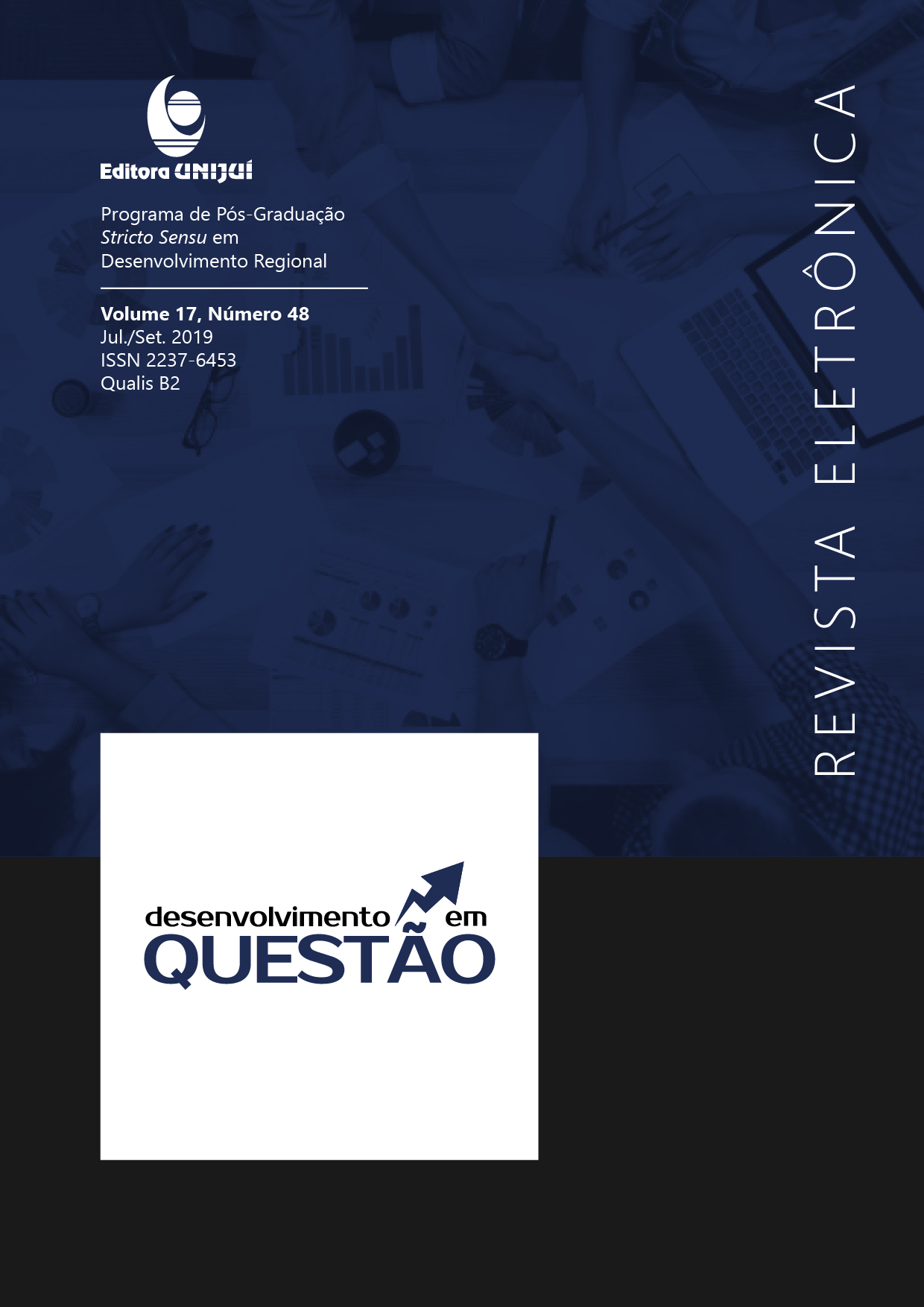Mulheres Rurais e Atividades Não Agrícolas no Âmbito da Agricultura Familiar
DOI :
https://doi.org/10.21527/2237-6453.2019.48.250-265Mots-clés :
Gênero, Agricultura familiarRésumé
O tema do estudo são as interconexões entre agricultura familiar, mulheres rurais e atividades não-agrícolas. O objetivo foi analisar como acontece a inserção de mulheres rurais nas atividades não-agrícolas no âmbito da agricultura familiar do município de Arvorezinha, estado do Rio Grande do Sul, Brasil. De natureza qualitativa e delineado como estudo de caso, o estudo envolveu a aplicação de formulários com 17 mulheres rurais inseridas em atividades não-agrícolas. Frente a um contexto de desvalorização do trabalho feminino nas atividades agrícolas tradicionais, a inserção nas atividades não-agrícolas se mostra como uma fonte econômica alternativa, acarretando, ao menos parcialmente, a independência financeira das mulheres rurais, além de resultar em melhorias de cunho sociocultural, ampliando o seu convívio social e a sua qualidade de vida. Dessa maneira, as atividades não-agrícolas no âmbito da agricultura familiar são favoráveis à autonomização das mulheres rurais, considerando suas vantagens monetárias e não-monetárias. Nesse sentido, destaca-se a necessidade de estudos sobre o potencial destas atividades em ampliar as possibilidades de permanência das mulheres no meio rural, levando em consideração que são as principais migrantes rumo aos centros urbanos, muito em virtude da desvalorização da sua atuação como agricultoras.
Téléchargements
Publié-e
Comment citer
Numéro
Rubrique
Licence
Ao publicar na Revista Desenvolvimento em Questão, os autores concordam com os seguintes termos:
Os trabalhos seguem a licença Creative Commons Atribuição 4.0 Internacional (CC BY 4.0), que permite:
Compartilhar — copiar e redistribuir o material em qualquer meio ou formato;
Adaptar — remixar, transformar e criar a partir do material para qualquer fim, inclusive comercial.
Essas permissões são irrevogáveis, desde que respeitados os seguintes termos:
Atribuição — Atribuição — os autores devem ser devidamente creditados, com link para a licença e indicação de eventuais alterações realizadas.
Sem restrições adicionais — não podem ser aplicadas condições legais ou tecnológicas que restrinjam o uso permitido pela licença.
Avisos:
A licença não se aplica a elementos em domínio público ou cobertos por exceções legais.
A licença não garante todos os direitos necessários para usos específicos (ex.: direitos de imagem, privacidade ou morais).
A revista não se responsabiliza pelas opiniões expressas nos artigos, que são de exclusiva responsabilidade dos autores. O Editor, com o apoio do Comitê Editorial, reserva-se o direito de sugerir ou solicitar modificações quando necessário.
Somente serão aceitos artigos científicos originais, com resultados de pesquisas de interesse que não tenham sido publicados nem submetidos simultaneamente a outro periódico com o mesmo objetivo.
A menção a marcas comerciais ou produtos específicos destina-se apenas à identificação, sem qualquer vínculo promocional por parte dos autores ou da revista.
Contrato de Licença (para artigos publicados a partir de 2025): Os autores mantêm os direitos autorais sobre seu artigo, e concedem a Revista Desenvolvimento em Questão o direito de primeira publicação.











